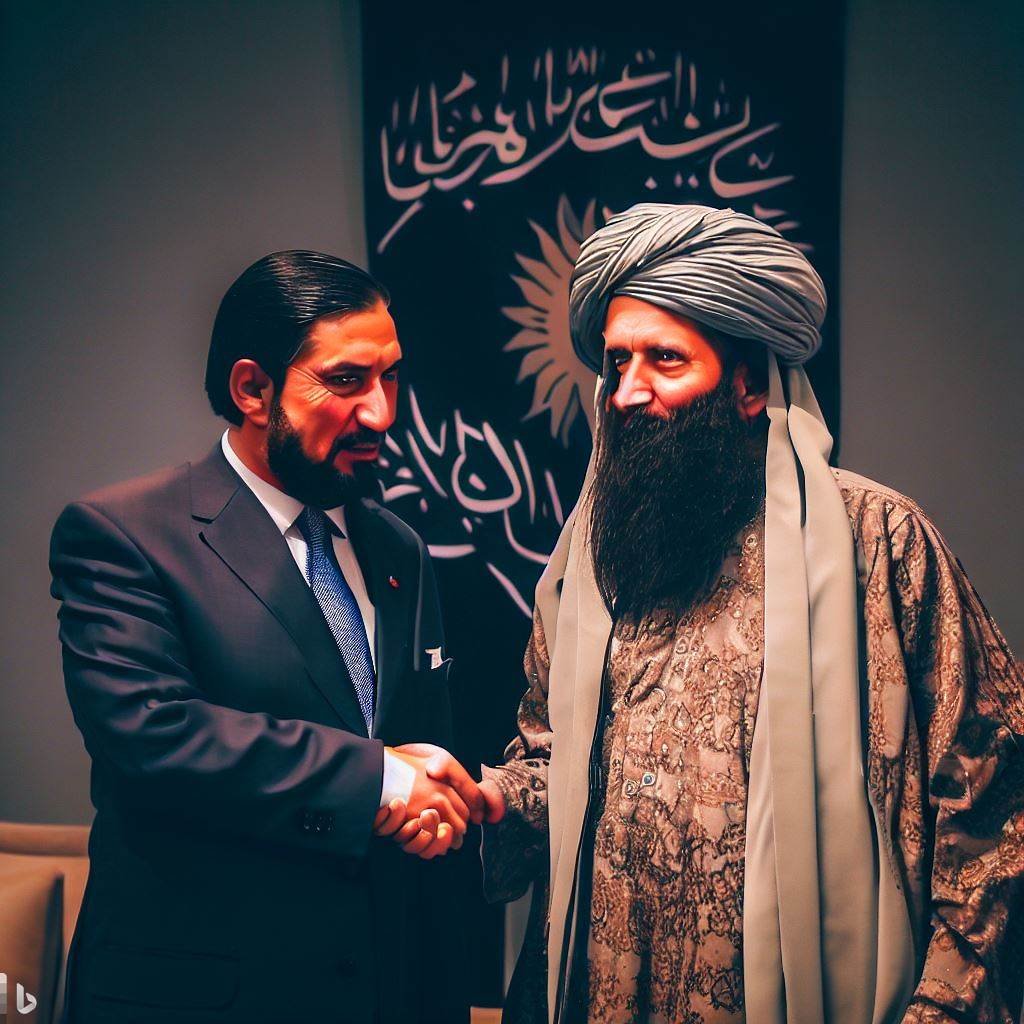Taliban’s Push for Diplomatic Relations Amidst Criticism of Suppression of Women’s Rights

@Microsoft Bing
By SS Ahmad
On the 25th of March, it was announced by a Taliban spokesperson that attempts were being made by the Taliban government to assume control of additional Afghan embassies abroad. This announcement has come considering their continued international isolation due to the restrictions placed on women and girls.
The stringent constraints on female education and employment have been severely criticized by the UN and foreign governments, and the global community remains hesitant to formally recognize the Taliban, despite some nations still retaining an active diplomatic presence in Afghanistan.
In a video, Zabihullah Mujahid, the primary spokesperson for the Taliban de facto government, stated that “diplomats of the former government are continuing their activities in coordination with the Foreign Ministry” and that the Islamic Emirate had dispatched diplomats to at least 14 countries while efforts were being made to assume control of other diplomatic missions abroad.
Mujahid confirmed that the administration had dispatched its diplomats to Iran, Türkiye, Pakistan, Russia, China, Kazakhstan, and other Arab and African countries, although he provided no further details. In February, authorities handed over control of Afghanistan’s embassy in Tehran to representatives of the Taliban de facto government, which had previously been manned by representatives from the previous US-backed Afghan government. Taliban didn’t provide figures on the number of active Afghan diplomatic missions abroad or the number taken over by the administration since August 2021.
He added that “There are many embassies abroad. Taliban wants to have diplomatic relations with all countries and move forward with good interactions. It is our hope that embassies will be opened in all countries as soon as official relations begin with the Islamic Emirate.” The Foreign Ministry spokesperson declined to answer questions from journalists on embassies.
Recently, the Taliban reported that a delegation of Taliban visited the Afghan consulate in the city of Khorug, in Tajikistan in March, 25. As per the report, the delegation was headed by Haji Mohammed Musa Amiri, a senior official from the Taliban de facto Government. However, there has been no confirmation on the issue from the Tajik authorities.
In January, Amina Mohammed, the Deputy Secretary-General of the United Nations and Chair of the United Nations Sustainable Development Group, stated that the Taliban desired international recognition and Afghanistan’s UN seat, which was currently held by the previous government headed by Ashraf Ghani. After meeting with Taliban ministers in Kabul and Kandahar in an attempt to reverse their repression of women and girls, she said, “Recognition is one leverage that we have, and we should hold on to it.”
The Taliban has prohibited girls from middle school, high school, and university, as well as women from most employment sectors, including NGOs. Women have also been required to wear full-body clothing in public and are prohibited from parks and gyms. Last week, schools began the new academic year without teenage girls, more than 18 months after the ban on secondary education was implemented. Although some aid organizations have partially resumed their operations through exemptions, the ban on NGO work is still in effect, and universities reopened after the winter break in early March without female students.
On Friday, Jan Egeland, the secretary-general of the Norwegian Refugee Council, stated that more than three months have passed since the “unacceptable ban” on female aid workers in Afghanistan was imposed. “We have made some local progress, allowing women’s return to work, but still await national permits,” he added.
There have been increased attempts by the Taliban to gain access to the embassies of Afghanistan located in various countries, as a part of the efforts to gain wider international recognition.
While political analysts consider this effort by the Taliban to increase the interaction and relation with other countries in the region and the world as important, they also emphasize that the Taliban should maintain a balanced approach in its foreign policy and relations with other nations, besides taking tangible steps towards ensuring the human rights of women and children in Afghanistan.
* SS Ahmad is a freelance researcher and journalist based in Afghanistan.
Note: The contents of the article are of sole responsibility of the author. Afghan Diaspora Network will not be responsible for any inaccurate or incorrect statement in the articles.






